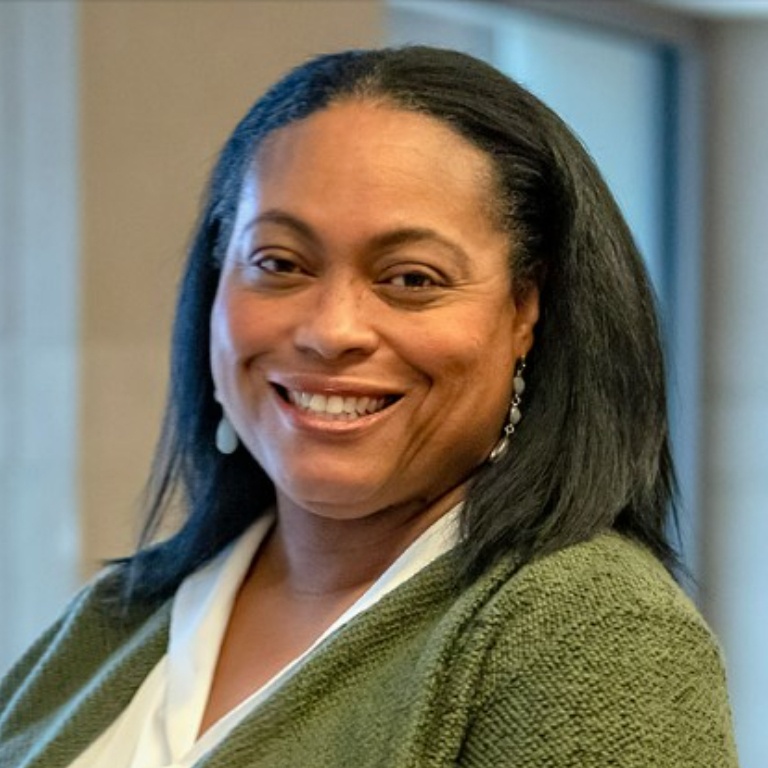- Campus:
- IU

What did you want to be as a child and how has that journey led you to where you are today?
I have always wanted to be a veterinarian; I have always loved animals and nature, but it just didn’t quite work out like that. Somewhere along the way, as I got closer to college age and started thinking more, about, “What can I afford, and how long can I afford to go to school for?” I am a first-generation college student, so it was very important for me that I was successful early on.
Where there any instances of discrimination you faced while working in tech?
Certainly, working in a cisgender-, white-male-dominated industry, has always had its challenges for me. I believe that the best way to overcome those obstacles and hurdles that are inevitable in your path - sometimes daily - is to focus on what you can do and what you are good at, instead of focusing on the things that are out of your control. That’s what I've just chosen to do. Even on a concerted effort, on a weekly basis to jot down my accomplishments and what gave me joy. That’s a constant thing to reflect on, such as what interactions and projects excited me. I have intentionally structured my work weeks in a balanced manner.
Have you ever felt an invisible ceiling/barrier when aiming for promotions or career growth?
Yes, I have! It's hard to always know if it's you –because I’m a black woman, or because I'm Stephanie or something that I've done. What is the reason? But I certainly feel like, number 1, there's not enough modeling or mentoring for BIPOC. We don’t have representation in our leadership roles, our executive roles. I don’t think we’ve had any black directors in our UITS essentialized technology, and I think that has to change. There must be some way to model and mentor to bring up the next generation of BIPOC leaders. It doesn't need to be just one person, but a grass roots effort that we really try to retain, recruit, and promote for BIPOC leaders.
Do you have any advice on keeping a good work-life balance?
Absolutely, I think we all need to practice self-care, but I think especially as a BIPOC leader, in a management position, the tendency to feel isolated or lonely may carry extra stress/weight on you. So, self-care is really important. Earlier in my career, I didn’t place a lot of focus on self-care, and I ended up with a lot of issues that come on in life because of neglect and not getting proper exercise, diet, and doing things to relieve anxiety. I also make it a practice to take nature walks. The other thing I try to do is verbal communications and constantly checking in with my team, so we always know the mental state everyone is in. Sometimes people need space and sometimes they need a virtual hug. So really knowing what you need at what time is important to me in my management style, and offering that to my team is how I want to be treated. So, I emulate that in treating my employees the same way.
Do you have any suggestions on how UITS or IU can give greater support for BIPOC women?
I think the one thing people could do is be more intentional, conscious, and aware. I think many times, BIPOC people think that they can come in to work, keep their heads down, work hard, do everything that's asked of them, and they will be promoted. That’s just genuinely - I've found - not true. You’ve got to have the right people around you lifting you up. Otherwise, in some work cultures, you will just spend years doing an excellent job and no one will say anything other than “Good job!” You’ve got to be more intentional in finding the people who are not articulate or have imposter syndrome and they don’t understand they have wonderful potential. The hard workers, the quiet voices—go to those folks and have conversations and find out “What are your future aspirations?”, and “Can I help you?” Those are the best phrases I can think of that should be asked.
What are some hobbies or interests you have that help you destress?
I love to go on nature walks, and I combine that with some spiritual and prayer time. I love gospel music, so most of the time when I’m out for walk, I listen to those songs or something inspirational with nature. That’s me in my happy place! Also, I really love spending time with family and friends, even just texting someone to check in on them or make plans to meet friends for coffee, or wine, or walk. Connecting with people is what makes me feel replenished. I've traveled quite a bit, and my adult kids are moving out, so it hasn’t lent itself to get a new pet right now. Growing up I had rabbits, lizards, goats, you name it. So, I’m not looking to add more animals to my home right now, but maybe after I retire.

